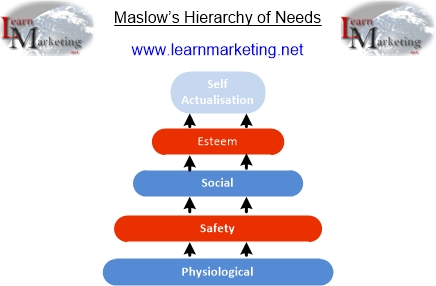Factors Influencing Consumer Buying Behaviour
Introduction
Consumer behaviour is affected by many uncontrollable factors. Just think, what influences you before you buy a product or service? Your friends, your upbringing, your culture, the media, a role model or influences from certain groups?
Culture
Culture is one factor that influences behaviour. Simply culture is defined as our attitudes and beliefs. But how are these attitudes and beliefs developed? As an individual growing up, a child is influenced by their parents, brothers, sister and other family member who may teach them what is wrong or right. They learn about their religion and culture, which helps them develop these opinions, attitudes and beliefs (AIO) . These factors will influence their purchase behaviour however other factors like groups of friends, or people they look up to may influence their choices of purchasing a particular product or service. Reference groups are particular groups of people some people may look up towards to that have an impact on consumer behaviour. So they can be a singer like the Lady Gaga or your immediate family members. Opinion leaders are those people that you look up to because your respect their views and judgments and these views may influence consumer decisions. So it maybe a friend who works with the IT trade who may influence your decision on what computer to buy. The economical environment also has an impact on consumer behaviour; do consumers have a secure job and a regular income to spend on goods? Marketing and advertising obviously influence consumers in trying to evoke them to purchase a particular product or service.
Social Status
People's social status will also impact their behaviour. What is their role within society? Are they Actors? Doctors? Office worker? and mothers and fathers also? Clearly being parents affects your buying habits depending on the age of the children, the type of job may mean you need to purchase formal clothes, the income which is earned has an impact. The lifestyle of someone who earns £250000 would clearly be different from someone who earns £25000. Also characters have an influence on buying decision. Whether the person is extrovert (out going and spends on entertainment) or introvert (keeps to themselves and purchases via online or mail order) again has an impact on the types of purchases made.
Maslow’s Hierarchy of Needs
Abraham Maslow's Hierarchy of Needs theory explores the factors behind human achievement and sets out the answer in the form of a hierarchy. The diagram below shows each of the 5 needs in Maslow's Hierachy Of Needs

Maslow suggests individuals first need to satisfy basic physiological needs such as shelter hunger and thirst. When these have been met, they move up to the next stage of the hierarchy; safety needs, where the priority is things like job security and knowing that you have a regular income. Safety is followed by social needs such as love and belonging. Things that influence self esteem are next in the hierarchy; status, recognition, job title and even wearing branded clothing make up self esteem needs as they imply a certain status. The last stage is self actualisation or the point where an individual believes they have met their potential and all of their needs have been met. But how does Maslow's concept help an organisation trying to market a product or service?
Well as we have established earlier within this website, marketing is about meeting needs and providing benefits, so the task involves marketing products that meet the needs of your target market. For example supermarkets sell value brands to meet the physiological needs of hunger and thirst whilst luxury retailer Harrods develops products and services for those who have met their esteem needs and are at the top of Maslow's Hierarchy of Needs Model.
For further information on motivation theory please visit www.learnmanagement2.com
Types of Buying Behaviour.
There are four types of buying behaviour.
- Complex buying behaviour is where the individual purchases a high value brand and seeks a lot of information before the purchase is made.
- Habitual buying behaviour is where the individual buys a product out of habit e.g. a daily newspaper, sugar or salt.
- Variety seeking buying behaviour is where the individual likes to shop around and experiment with different products. So an individual may shop around for different breakfast cereals because he/she wants variety in the mornings!
- Dissonance reducing buying behaviour is when buyers are highly involved with the purchase of the product, because the purchase is expensive or infrequent. There is little difference between existing brands an example would be buying a diamond ring, as people believe there is little difference between diamond brand manufacturers.
Summary
There are five stages in the consumer purchase process
- Problem/Need Recognition
- Information search
- Evaluation of purchases
- Purchase decision
- Post purchase behaviour
Culture and social status has a big impact on consumer purchasing behaviour and product development should take these into account. Marketers should also be aware of Maslow's Hierarchy of needs theory during product selection, market segmentation, and marketing campaign planning.
Back




